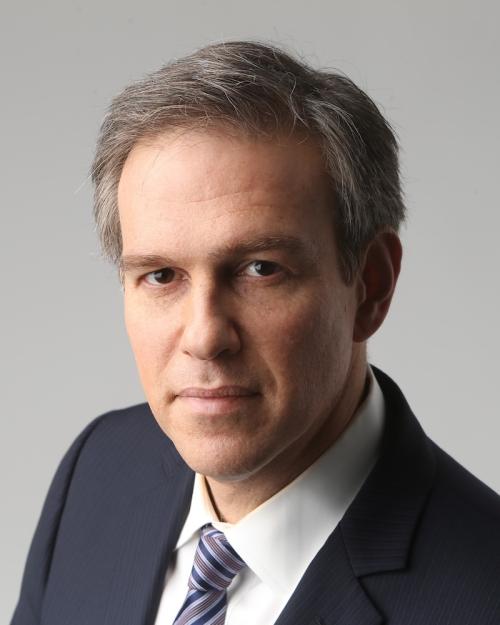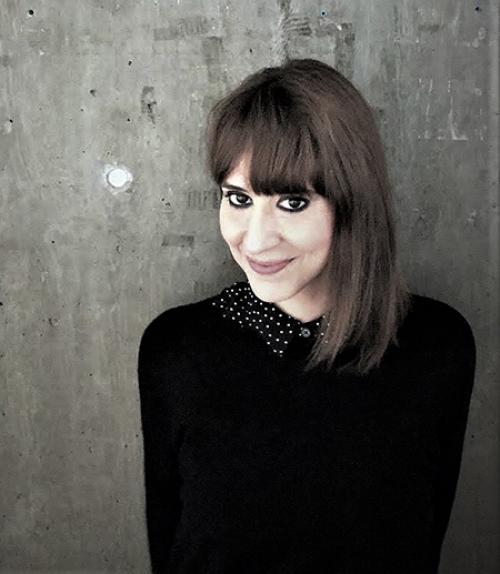Valeria Dani, Ph.D. ’19 is an alumna of the romance studies program at Cornell from which she holds a Ph.D. Now, she will be starting a new position as community engagement director at the Alliance for Higher Education in Prison as a Mellon/ACLS Public Fellow.
What is your area of research and why is it important?
My research focuses on contemporary poetry, with strong interdisciplinary interests in critical theory, feminism, and film studies. I employ hermeneutics and Jewish mysticism to generate new theoretical synergies between the Italian lyric, cinema, and gender. My doctoral project, titled "Anadiplosis/Climax. Ascensions and Downfalls in Italian Poetry", studies the rhetorical figure of repetition called 'anadiplosis', which I analyze both from a historical and theoretical perspective – wielding it as a tool to intervene in debates around the philosophy of language, political theology, and the limits of representation.
What inspired you to choose this field of study?
I came to Cornell knowing that I wanted to work on poetry as an ideal continuation of my previous studies at the University of Rome (Sapienza). My passion towards literary theory, feminism, cinema, and Jewish thought eventually crystallized into the study of an opaque, almost unpronounceable, rhetorical device (anadiplosis). Since then, my work has been shaped and directed by this luminous figure – one that represents an occasion to reflect upon the potentialities (and limits) of language, especially in relation to the lyric and political praxis.
What does it mean to you to have been selected as a Mellon/ACLS Public Fellow?
I feel incredibly honored. The Mellon/ACLS Public Fellow program aims at placing humanities Ph.D.s in professional roles with nonprofit and government organizations, bridging the obsolete hiatus between the academe and the community (hence advancing what is broadly referred to as the “Public Humanities”). This prestigious fellowship will allow me to further a crucial aspect of my academic path: the enhancement of higher education in prison, a field I worked in while at Cornell (through the outstanding Cornell Prison Education Program). This praxis, which has both academic and political meanings for me, brought me to teach literature, critical theory, and academic writing in various maximum-security facilities in Upstate NY. As a feminist and prison abolitionist, this experience represented one of the most crucial components of my graduate years.
What will you be doing in your role as Community Engagement Director for the Alliance for Higher Education in Prison?
The Alliance is eager to incorporate my areas of research and expertise into the work we will pursue over the next two years: as Community Engagement Director, I will contribute towards the development of a new academic journal (The Journal of Higher Education in Prison), build toolkits to share as scholarly and pedagogical resources for instructors across the country, organize and moderate workshops, orchestrate reading groups, and help plan the National Conference of Higher Education in Prison.
What book is currently on your bedside table?
To name the two at the top of the tall (too tall) summer pile: I am eager to start (in line with my tangential obsession with staircases and the horror genre) "House of Leaves" by Mark Z. Danielewski, which I have been meaning to read for a while. Also, since I am currently developing further my doctoral project, I am analyzing feminist political rhetoric with an emphasis on anadiplosis and repetition. "Feminist Manifestos: A Global Documentary Reader" (edited by Penny A. Weiss) provides an excellent – and extraordinarily comprehensive – collection of documents by feminist collectives, spanning over three centuries and fifty countries. A monumental, month-long read.
How did your Cornell graduate education prepare you to succeed professionally?
I experienced my doctoral years as a chance to blur the lines between rigor and creativity, structure and accelerated moments of inspiration – in my writing as well as in the classroom. I am still learning to navigate (and possibly defy) these dichotomies, conscious of the immense labor ahead of me. I am not sure if this approach contributed to what I achieved, but I know that it truly informs the way that I conceive of my work and the space I devote to it.
What skills did you take away from your degree program that will help you in your career?
Although I recognize that possessing a set of marketable skills is vital in the current job market, this term belongs to a lexicon that I prefer not to adopt. I tend to think about my experience at Cornell as an occasion to deepen my academic interests while discovering new meanings, values, and conversations. Throughout my graduate education, I was privileged enough to immerse myself in the study of literature and critical theory while developing a pedagogical vision that mirrors my interests and beliefs. My doctoral work vividly shaped my intellectual and political commitments, which I look forward to broadening even further through the Mellon/ACLS fellowship.
If you could go back in time to the beginning of your graduate career, what advice would you give yourself?
At the very start of graduate school, I felt that the interdisciplinary nature of my work was not a strength, but a weakness: at first, this prevented me from truly engaging with other departments and practices, leaving me rather frustrated. Luckily, thanks to my mentors’ guidance and some creativity, I shifted my perspective and placed my Italian studies project in a broader landscape. This led me to conduct research at the Hebrew University in Jerusalem; teach within the Feminist, Gender, and Sexuality Studies Program; and work as Visiting Lecturer at the John S. Knight Institute for Writing in the Disciplines and for CPEP. If I could go back in time, I would tell myself to make the leap earlier.
Read the story on the Cornell University Graduate School website.




